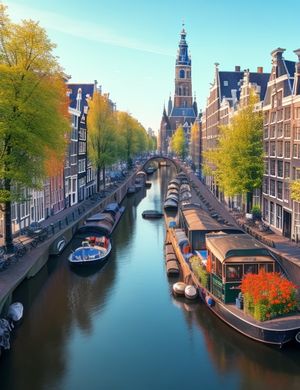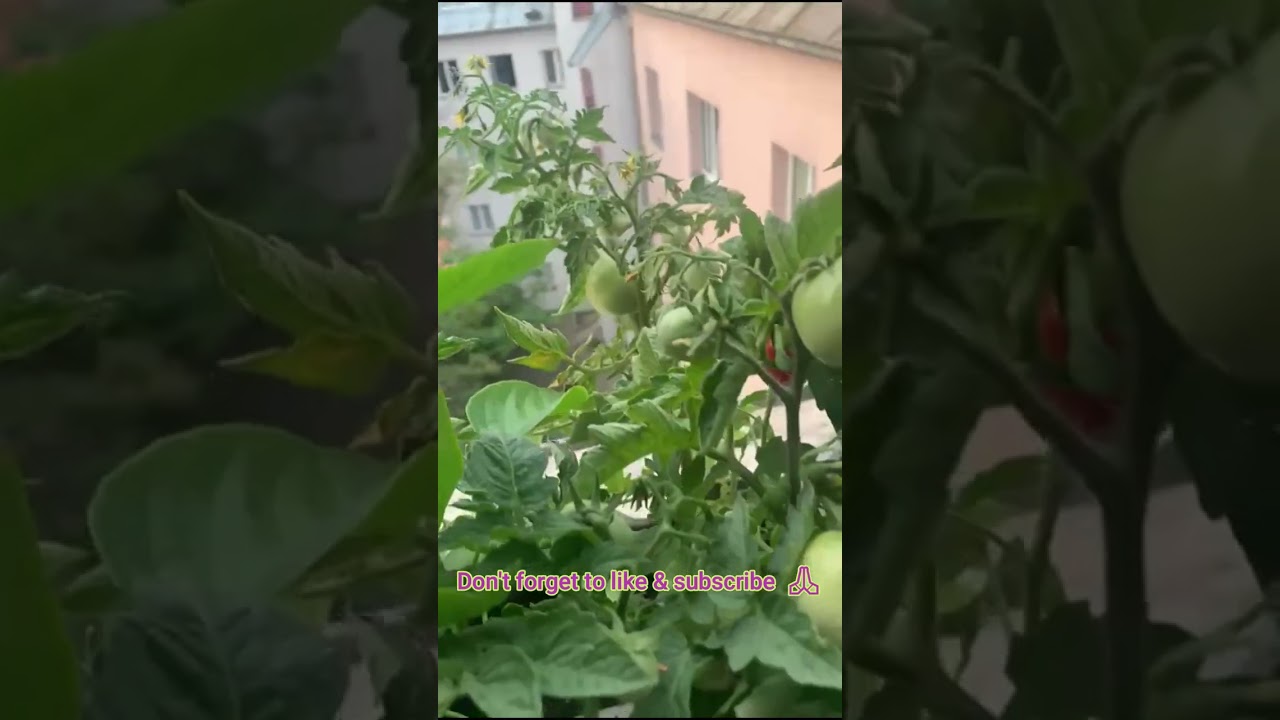
Getting to and Around Amsterdam
Amsterdam is accessible through Amsterdam Airport Schiphol, one of the largest airports in Europe. It’s well-connected with all major international destinations. The city center is a short 15-minute train ride from the airport.
Amsterdam is famous for its cycling culture, and bike rentals are widely available. However, the city also has an efficient public transportation system including trams, buses, and metros. Amsterdam’s compact size also makes it a delight to explore on foot.
Top Attractions
- Rijksmuseum: The most visited museum in the Netherlands, the Rijksmuseum houses an extensive collection of Dutch art and history, with works from masters such as Rembrandt and Vermeer.
- Van Gogh Museum: This museum dedicated to Vincent Van Gogh houses the largest collection of his works in the world, including “Sunflowers” and “The Potato Eaters.”
- Anne Frank House: The hiding place where Anne Frank wrote her famous diary during World War II is now a poignant museum.
- Canal Belt: Amsterdam’s UNESCO-listed canal belt is beautiful to explore, either on foot, by bike, or by boat.
- Royal Palace: Located in Dam Square, the Royal Palace is one of three palaces used by the Dutch King.
- Heineken Experience: This popular attraction is an interactive tour through the history of Heineken beer.
- Jordaan: This trendy neighborhood is filled with independent art galleries, antique shops, courtyard gardens, and atmospheric bars and restaurants.
- Vondelpark: Amsterdam’s most popular park is a great place to relax, cycle, or have a picnic.
Hidden Gems
- Begijnhof: A peaceful courtyard dating from the early 14th century was once the site of a Beguine convent. The hidden oasis, located amidst the bustling city center, is free to visit.
- Ons’ Lieve Heer op Solder (Our Lord in the Attic): This museum is a 17th-century canal house with a hidden Catholic church in the attic.
- De Pijp: Known as Amsterdam’s Latin Quarter, this vibrant neighborhood is home to a melting pot of cultures and the famous Albert Cuyp Market.
Food and Drink
Amsterdam’s food scene is diverse, with a mix of traditional Dutch fare and international cuisine. Here are some must-try foods:
- Stroopwafel: This sweet treat consists of two thin waffles stuck together with a layer of sweet syrup.

- Bitterballen: These deep-fried meatballs are a popular pub snack, usually served with mustard for dipping.
- Haring: Raw herring may sound intimidating, but it’s a Dutch delicacy, often served with pickles and onions.
- Poffertjes: These small, fluffy pancakes are often served with a dusting of powdered sugar and a pat of butter.
Don’t forget to sample local cheese and the famous Heineken beer. For coffee lovers, Amsterdam’s coffee scene is thriving, and the city is known for its “coffee shops,” where the sale of cannabis for personal consumption by the public is tolerated by the local authorities.
Tips and Fun Facts
- Amsterdam is known as the “Venice of the North” due to its impressive canal system that spans over 100 kilometers.
- With about 881,000 bicycles, bikes outnumber people in Amsterdam. Remember to watch out for bike lanes when walking around the city.
- Amsterdam has more than 1,500 bars and cafes. In the city center, you will rarely be more than a stone’s throw away from a place to drink.
- The city is home to 165 canals, 1,281 bridges, and approximately 2,500 houseboats.
- If you’re an art lover, make sure to visit during Amsterdam Art Weekend which takes place annually in November.
- Amsterdam is not just a city for grown-ups. There are plenty of family-friendly attractions, including NEMO Science Museum, ARTIS Royal Zoo, and Vondelpark.
- If you’re planning to visit several museums and attractions, consider getting the I Amsterdam City Card which offers free entry to many sights, plus free public transport.
Nightlife
Amsterdam’s nightlife is diverse and caters to all tastes. Leidseplein and Rembrandtplein are the city’s main nightlife areas, home to many bars, clubs, and restaurants.
- Paradiso: This club located in a converted church is one of Amsterdam’s most famous nightlife venues.
- Melkweg: One of the city’s leading concert venues, Melkweg (Milky Way), also has a cinema, a restaurant and an art gallery.
- Brouwerij ‘t IJ: This popular local brewery located next to a windmill offers a selection of organic beers.
- Café De Dokter: This tiny, atmospheric bar has been serving jenevers (Dutch gin) since 1798.
Annual Events
Amsterdam hosts several annual events worth timing your visit for:
- King’s Day (Koningsdag): This national holiday on April 27th is a citywide street party, with music, plenty of food, and drink, and people dressed in orange.
- Amsterdam Light Festival: From November to January, the city is illuminated with artistic light installations.
- Gay Pride Amsterdam: Amsterdam Pride is a citywide gay-festival held annually at the center of Amsterdam during the first weekend of August. The festival attracts several hundred-thousand visitors each year and thus one of the largest publicly held annual events in the Netherlands.
Conclusion
From its beautiful canals and historic buildings to its world-class museums and vibrant nightlife, Amsterdam has something for every traveler. Its rich history, tolerant society, and cosmopolitan vibe make it a truly unique city worth visiting.
Whether you spend your days exploring iconic museums, lounging in beautiful parks, or hunting for the perfect stroopwafel, you’re sure to fall in love with all that Amsterdam has to offer.
A list of common Dutch phrases that would be helpful during your travel. I’ve added Turkish and Persian (Farsi) equivalents as well for your reference.
| English | Dutch | Turkish | Persian (Farsi) |
|---|---|---|---|
| Hello / Hi | Hallo / Hoi | Merhaba / Selam | سلام (Salam) |
| Good morning | Goedemorgen | Günaydın | صبح بخیر (Sobh bekheir) |
| Good evening | Goedenavond | İyi akşamlar | عصر بخیر (Asr bekheir) |
| Good night | Goedenacht | İyi geceler | شب بخیر (Shab bekheir) |
| Please | Alsjeblieft | Lütfen | لطفا (Lotfan) |
| Thank you | Dank je | Teşekkür ederim | ممنون (Mamnoon) |
| Yes | Ja | Evet | بله (Bale) |
| No | Nee | Hayır | نه (Na) |
| Excuse me | Pardon | Affedersiniz | ببخشید (Bebakhshid) |
| I don’t understand | Ik begrijp het niet | Anlamıyorum | من نمیفهمم (Man nemifahmam) |
| Where is the bathroom? | Waar is de wc? | Tuvalet nerede? | دستشویی کجاست؟ (Dastshooi kojast?) |
| Do you speak English? | Spreek je Engels? | İngilizce konuşuyor musunuz? | آیا انگلیسی حرف میزنید؟ (Aya English harf mizanid?) |
| How much is this? | Hoeveel kost dit? | Bu ne kadar? | این چقدر است؟ (In cheghadr ast?) |
| Help! | Help! | İmdat! | کمک! (Komak!) |
| Goodbye | Tot ziens / Doei | Hoşça kal / Güle güle | خداحافظ (Khodahafez) |
| I’m sorry | Het spijt me | Özür dilerim | متاسفم (Motasafam) |
| My name is… | Mijn naam is… | Benim adım… | اسم من… است (Esm man…ast) |
| What is your name? | Hoe heet je? | Adınız nedir? | اسم شما چیست؟ (Esm shoma chist?) |
| How are you? | Hoe gaat het? | Nasılsın? | حال شما چطور است؟ (Haal shoma chetor ast?) |
| I’m fine, thank you | Het gaat goed, dank je | İyiyim, teşekkür ederim | خوبم, ممنون (Khoobam, mamnoon) |
| Nice to meet you | Leuk je te ontmoeten | Tanıştığımıza memnun oldum | خوشوقتم (Khoshvaghtam) |
| Where is…? | Waar is…? | …nerede? | …کجاست؟ (…kojast?) |
| I need help | Ik heb hulp nodig | Yardıma ihtiyacım var | من به کمک نیاز دارم (Man be komak niaz daram) |
| I’m lost | Ik ben verdwaald | Kayboldum | گم شدم (Gom shodam) |
| Can you help me? | Kun je me helpen? | Bana yardım eder misiniz? | میتوانید به من کمک کنید؟ (Mitavanid be man komak konid?) |
| I’m looking for… | Ik ben op zoek naar… | …arıyorum | من دنبال… هستم (Man donbal… hastam) |
| I don’t speak Dutch/Turkish/Persian | Ik spreek geen Nederlands/Turks/Perzisch | Hollandaca/Türkçe/Farsça konuşmuyorum | من هلندی/ترکی/فارسی صحبت نمیکنم (Man Hollandi/Turki/Farsi sohbat nemikonam) |
| Do you have…? | Heb je…? | …var mı? | …دارید؟ (…darid?) |
| I would like… | Ik wil graag… | …isterim | من میخواهم… (Man mikhaham…) |
| Where can I find…? | Waar kan ik…vinden? | …nerede bulabilirim? | …کجا پیدا کنم؟ (…koja peyda konam?) |
Remember that making an effort to speak the local language is often appreciated and can make your interactions with locals more rewarding.


